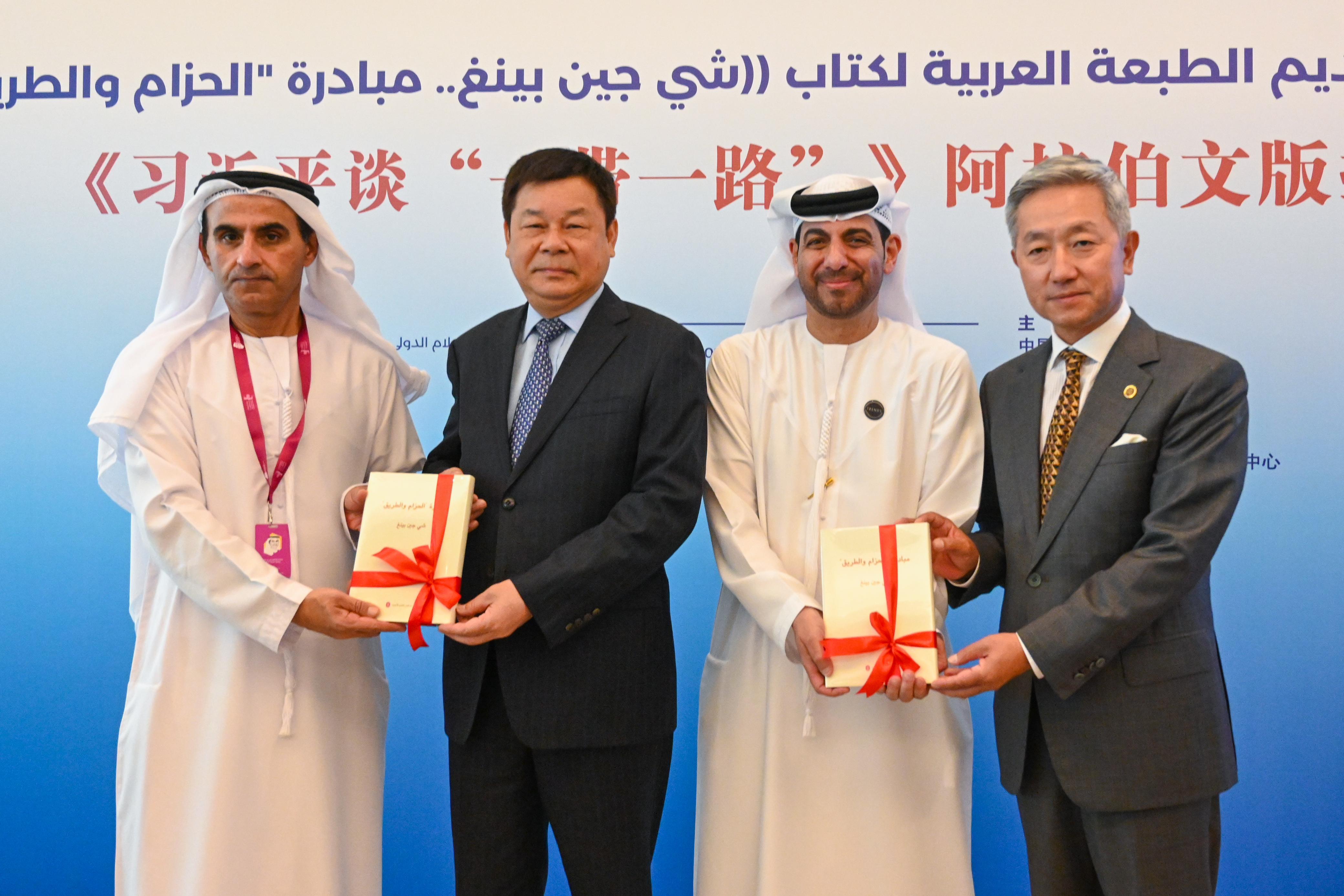The China Factor: Why Luxury Car Brands Like BMW And Porsche Are Facing Headwinds

Table of Contents
Shifting Economic Landscape in China
Slowing Economic Growth
Slower GDP growth in China is directly impacting luxury car sales. The once-unstoppable rise of the Chinese middle class, a key driver of luxury consumption, is showing signs of moderation. This translates to:
- Decreased consumer spending: Luxury goods, including high-end automobiles, are often the first to be affected when consumer confidence wanes.
- Rising inflation: Increased prices for essential goods leave less disposable income for discretionary purchases like luxury cars.
- Government regulations impacting luxury goods: Policies aimed at curbing excessive spending and promoting domestic brands can further dampen demand for imported luxury vehicles.
Data from the China Association of Automobile Manufacturers (CAAM) reveals a consistent trend of slowing growth in luxury car sales, with year-on-year increases dwindling compared to the double-digit growth seen in previous years. For example, [Insert specific data on luxury car sales decline in China - e.g., "Luxury car sales in 2023 fell by X% compared to 2022, marking the first decline in Y years"]. This reflects a broader economic slowdown and a change in consumer priorities.
Increased Competition from Domestic Brands
The rise of Chinese luxury car brands like Nio, Xpeng, and Li Auto is significantly impacting established players. These domestic brands offer:
- Competitive pricing: Often undercutting foreign competitors.
- Advanced features: Including cutting-edge technology and customization options tailored to the preferences of Chinese consumers.
- Stronger branding: Connecting with a younger demographic through targeted marketing campaigns and a focus on national pride.
These domestic brands are rapidly gaining market share, forcing BMW, Porsche, and other international players to adapt their strategies to compete effectively. [Insert data comparing market share of foreign vs. domestic luxury brands – e.g., "Domestic brands now hold Z% of the luxury car market in China, a significant increase from just A% five years ago"].
Evolving Consumer Preferences in China
Younger Generation's Priorities
China's younger generation, digitally native and highly informed, are driving a shift in luxury car purchasing decisions. Their priorities include:
- Technology integration: Advanced driver-assistance systems, connectivity features, and seamless integration with smartphones are crucial selling points.
- Sustainability: Eco-friendly vehicles and commitment to environmental responsibility are gaining traction.
- Personalized experiences: Customization options and bespoke services enhance the appeal of luxury vehicles.
- Brand alignment with values: Consumers are increasingly aligning their purchases with brands that reflect their personal values and social consciousness.
Data indicates that millennials and Gen Z are becoming the dominant force in the Chinese luxury car market, with their preferences heavily influencing brand strategies. [Insert data on the demographic breakdown of luxury car buyers in China and their stated priorities].
Brand Loyalty and Shifting Perceptions
Traditional brand loyalty is eroding in the Chinese luxury car market. Social media, online reviews, and word-of-mouth marketing significantly impact brand perception. This means:
- Increased scrutiny: Consumers are more likely to research and compare different brands before making a purchase decision.
- Emphasis on online reputation: Negative reviews or social media controversies can severely impact sales.
- Demand for transparency: Consumers are demanding greater transparency regarding manufacturing processes, sustainability practices, and ethical sourcing.
This shift necessitates a focus on building strong online presence, actively managing brand reputation, and engaging with consumers on social media platforms. [Insert data illustrating shifting brand perceptions and loyalty among Chinese consumers - e.g., "Brand trust scores for foreign luxury brands have dropped by X% in the last Y years"].
Geopolitical and Regulatory Risks
Trade Tensions and Tariffs
Trade disputes between China and other countries can significantly impact the profitability of luxury car brands operating in China.
- Increased import costs: Tariffs on imported vehicles can make luxury cars more expensive, reducing demand.
- Supply chain disruptions: Geopolitical tensions can disrupt the supply chains, leading to production delays and shortages.
The impact of trade wars and tariffs on the price and availability of luxury vehicles can be substantial, requiring brands to adjust their pricing strategies and sourcing methods. [Insert data on import tariffs and their impact on luxury car prices in China – e.g., "Tariffs have increased the price of imported luxury cars by an average of X%"].
Government Regulations and Policies
The Chinese government actively regulates the automotive industry, impacting both domestic and foreign brands.
- Stringent emission standards: Compliance with stricter emission regulations requires significant investment in research and development.
- Safety regulations: Meeting increasingly stringent safety standards adds to the cost of production.
- Policies promoting domestic brands: Government incentives and preferential treatment for domestic brands create a competitive disadvantage for foreign players.
Understanding and adapting to these government regulations is essential for long-term success in the Chinese market. [Insert examples of specific government regulations and their impact – e.g., "The implementation of the new emission standard X has forced many luxury car manufacturers to invest Y billion in upgrading their production lines"].
Conclusion: Navigating the China Factor for Luxury Car Brands
The China factor presents significant challenges for luxury car brands: slowing economic growth, evolving consumer preferences, and geopolitical risks are all contributing to a more complex and competitive market. Successfully navigating this landscape requires a strategic shift towards localization, adapting to the preferences of younger consumers, and proactively addressing geopolitical and regulatory uncertainties. Understanding the nuances of the Chinese market, including the rise of electric vehicles (EVs) and the increasing demand for sustainable and technologically advanced vehicles is crucial. Further research into the specific preferences of Chinese luxury car buyers and the ever-evolving regulatory environment is essential for navigating the future of this dynamic market. Understanding the China factor is crucial for the success of luxury car brands. Further research into consumer behavior studies and the growth of the EV market in China is essential for navigating the future of this dynamic market.

Featured Posts
-
 Strong Reliance Results Potential Uplift For Indias Large Cap Index
Apr 29, 2025
Strong Reliance Results Potential Uplift For Indias Large Cap Index
Apr 29, 2025 -
 Abrz Mealm Fn Abwzby 2024 Bdayt Alerd 19 Nwfmbr
Apr 29, 2025
Abrz Mealm Fn Abwzby 2024 Bdayt Alerd 19 Nwfmbr
Apr 29, 2025 -
 Teen Guilty Of Murder After Fatal Rock Throwing
Apr 29, 2025
Teen Guilty Of Murder After Fatal Rock Throwing
Apr 29, 2025 -
 160km H Mlb
Apr 29, 2025
160km H Mlb
Apr 29, 2025 -
 Humanitarian Crisis In Gaza Demand Grows For Israel To Lift Aid Restrictions
Apr 29, 2025
Humanitarian Crisis In Gaza Demand Grows For Israel To Lift Aid Restrictions
Apr 29, 2025
Latest Posts
-
 Israeli Airstrike Hits Beirut Evacuation Warning Issued
Apr 29, 2025
Israeli Airstrike Hits Beirut Evacuation Warning Issued
Apr 29, 2025 -
 Prank Call To Shedeur Sanders Son Of Atlanta Falcons Defensive Coordinator Offers Apology
Apr 29, 2025
Prank Call To Shedeur Sanders Son Of Atlanta Falcons Defensive Coordinator Offers Apology
Apr 29, 2025 -
 Atlanta Falcons Dcs Sons Prank Call To Shedeur Sanders An Apology
Apr 29, 2025
Atlanta Falcons Dcs Sons Prank Call To Shedeur Sanders An Apology
Apr 29, 2025 -
 Shedeur Sanders Prank Call Son Of Falcons Defensive Coordinator Apologizes
Apr 29, 2025
Shedeur Sanders Prank Call Son Of Falcons Defensive Coordinator Apologizes
Apr 29, 2025 -
 Falcons Dcs Son Issues Apology For Shedeur Sanders Prank Call
Apr 29, 2025
Falcons Dcs Son Issues Apology For Shedeur Sanders Prank Call
Apr 29, 2025
